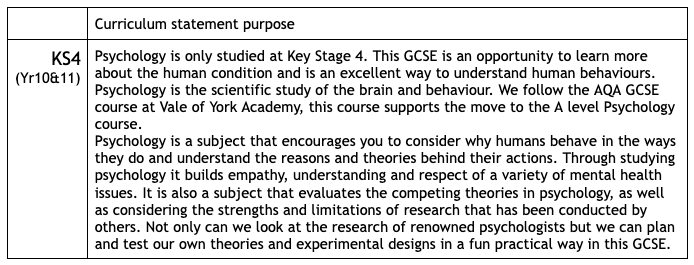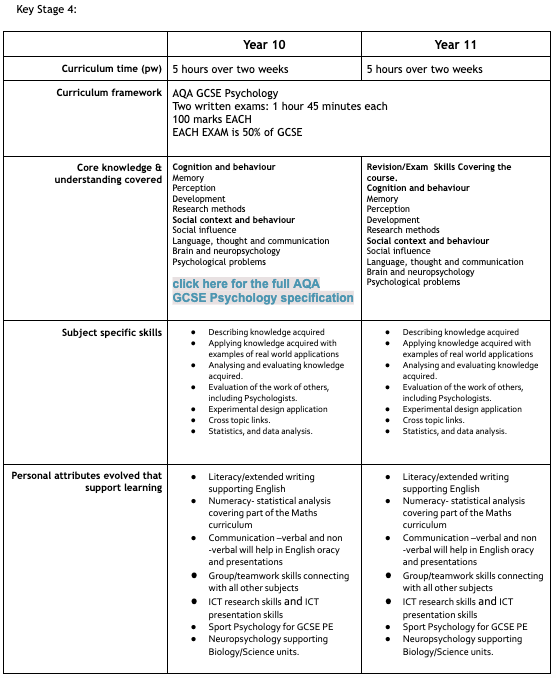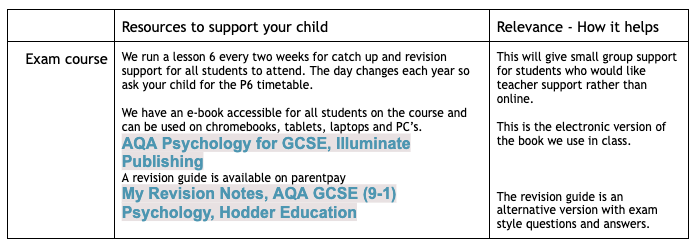Curriculum subject: Psychology
Curriculum Leader: Mrs E. Hardy
email: e.hardy@voy.hslt.academy
Curriculum quote:

Curriculum intent

Curriculum sequence/plan/model:
Psychology – Learning Journey

Curriculum implementation:
As an Academy we have a range of clear standards and expectations of our pupils however each subject area has its own individual practices and habits that ensure that it can function to its optimum.
Psychology is taught in a modular, topic based way. Each examined topic is taught using a range of teaching methods, and will be assessed using exam board questions at the end of each topic. This allows for exam question practise as well as a check in understanding and the ability to apply learning.


Careers Information
Studying psychology gives you a broad range of skills that span both science and the arts and opens up opportunities with a variety of employers.
The GCSE in Psychology can lead to studying A Level in Psychology at post-16 and then a degree in Psychology in most universities. Psychology is useful for any job that requires lots of interaction or an understanding of human behaviour and development.
People with skills in psychology are sought after in business, management, teaching, research, social work and careers in medicine and healthcare. Psychologists have excellent communication and active listening skills.
If you are interested in studying the subject at degree and postgraduate level in order to become a psychologist, you can work in a huge range of areas including:
- Sports – helping athletes to build mental strategies to improve their performance and handle pressure.
- Education – studying child development and helping children experiencing difficulties with their education.
- Clinical and counselling – treating people with mental health needs.
- Forensic – assessing and treating criminal behaviour, which can involve working with offenders and victims of crime.
- Occupational – aiming to increase the effectiveness of an organisation and improve job satisfaction.
- Neuropsychology – studying how the physical function of the brain affects the way we behave and helping to treat people suffering from brain injuries.
Other reference and revision support:






